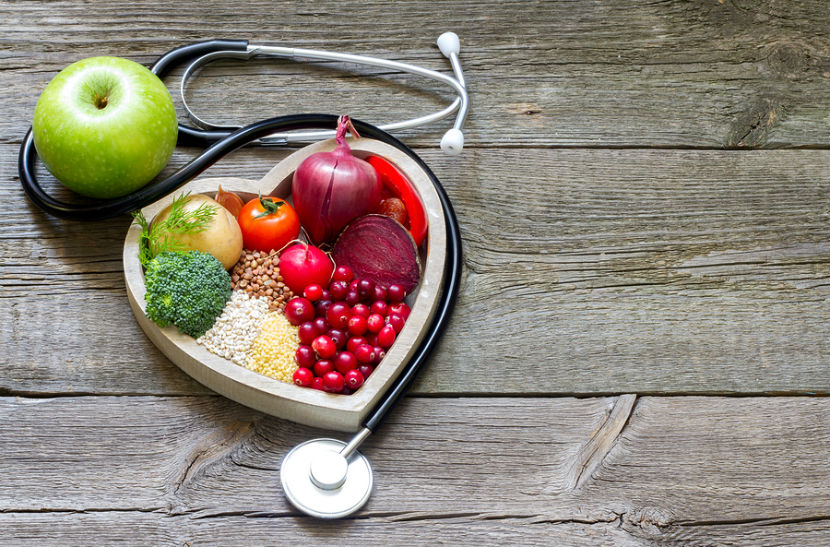
Cholesterol is a fat-like substance that is part of your body’s cells and helps you make vitamin D, bile and certain hormones. However, having high cholesterol levels puts you at higher risk for heart disease. Read on to learn more about blood cholesterol and dietary cholesterol and how to keep your cholesterol levels healthy.
Where does cholesterol come from?
Cholesterol is made in your liver
Your body naturally makes cholesterol in your liver. This is called “blood cholesterol” because it is the cholesterol that circulates in your blood.
Cholesterol comes from food
Cholesterol can come from the foods you eat. This is called “dietary cholesterol” and is found in animal foods like meat, poultry, milk products, eggs, fish and seafood. After you eat, dietary cholesterol circulates in your blood and is stored in your liver.
What are the two types of cholesterol?
-
LDL cholesterol is known as “bad cholesterol”. Too much can lead to plaque build up in your arteries. This can increase the risk of heart disease.
-
HDL cholesterol is known as “good cholesterol”. It helps remove LDL cholesterol from your arteries.
To help lower your risk of heart disease, the goal is to lower LDL cholesterol AND raise HDL cholesterol.
How do you get high cholesterol?
The following risk factors may cause high cholesterol:
-
A family history of high cholesterol
-
A high fat diet, including saturated and trans fats
-
Being overweight
-
Low physical activity
-
High alcohol intake
-
Smoking
-
Some health conditions like diabetes, kidney disease and liver disease
Do you get high cholesterol from eating too much cholesterol in food?
No. Most people do not need to count how much dietary cholesterol they get each day. The amount of cholesterol you get from food usually has little impact on your blood cholesterol.
If you have diabetes or heart disease, speak to a dietitian or your doctor about how much dietary cholesterol is right for you.
What can I do to prevent or lower high cholesterol levels?
-
Choose foods that are lower in saturated fat, like lean cuts of meat, skinless poultry, lower fat milk and dairy products, fish and legumes. Try these delicious Mango Chicken Wraps for a tasty lunch or this Black Bean Couscous for a satisfying salad.
-
Read labels and avoid foods made with trans, hydrogenated or partially hydrogenated fat. Examples include fried foods, potato chips, donuts, crackers, hard margarines and baked goods.
-
Increase your intake of foods that contain unsaturated fat, like canola or olive oil, avocado, salmon and trout, and unsalted nuts and seeds.
-
Make sure you are getting enough soluble fibre. Aim for 10-25 g/day. Choose whole grain breads and cereals, oats, oat bran, psyllium, beans, peas, lentils, eggplant, and okra. Eat vegetables and fruit with the peels.
-
Include soy protein in your diet. Aim for at least 20 g/day. This includes soy beverages, tofu and tempeh and textured vegetable protein (TVP). Try this Tofu Vegetable Soup for lunch.
-
Eat a handful (1/4 cup) of unsalted nuts and seeds five or more times a week. Pumpkin, sunflower, sesame, almonds, walnuts and pistachios are great to add to salads, baked goods and main dishes.
-
Choose foods that contain plant sterols like whole grains, nuts, vegetables and fruit. On packaged foods look for the label to say phytosterol, plant sterol or sterol esters.
A healthy lifestyle can also help you prevent or lower high cholesterol:
-
Manage your weight. Losing any excess weight, especially around your waist, helps increase your HDL cholesterol and lower your LDL cholesterol.
-
Be physically active. Regular exercise improves HDL cholesterol. Adding any amount of activity helps. Try these activities to get into the swing of being active.
-
Quit smoking. Studies have shown that quitting can increase HDL cholesterol. The Smokers’ Helpline has tips and resources to help you get started.
Bottom Line on Cholesterol
If you are in good health, you do not need to count dietary cholesterol. If you have diabetes or heart disease, talk to your healthcare provider about dietary cholesterol. And everybody can keep their blood cholesterol in check by making healthy choices that include less saturated and trans fats and more vegetables, fruit, lean meats, high fibre whole grains, legumes, soy, nuts and seeds.
You may also like
Understanding Eggs and Cholesterol
Facts on Fats
Facts on soluble fibre
Last Update – September 28, 2017